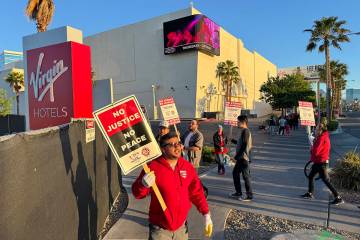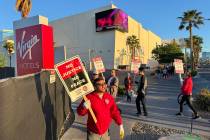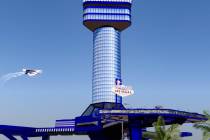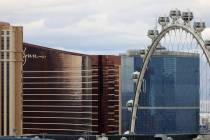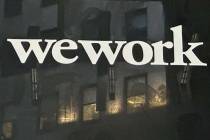Stocks rally after storm damage less than feared
NEW YORK -- Stocks rose sharply after fears that Tropical Storm Irene would cause widespread catastrophic damage subsided along with the storm. The Dow Jones industrial average gained 220 points in afternoon trading Monday.
Irene raked the East Coast and caused widespread flooding Sunday. Millions were still without power. An insurance consulting firm predicted that the claims paid by insurers would be about $2 billion to $3 billion, far less than the $6 billion the industry paid out after Hurricane Isabel struck the region in 2003.
The lower damage estimates pushed insurance stocks higher. Allstate Corp. rose 6.9 percent, Hartford Financial Services Group Inc. rose 10.4 percent, while Travelers Cos. Inc. rose 4.9 percent.
Utilities companies mostly rose after it became clear their storm-related expenses also would be below earlier estimates. Duke Energy Corp., which serves customers in the Carolinas, rose 1 percent. New York's biggest utility company, Consolidated Edison Inc., rose 1.2 percent.
The New York Stock Exchange and other major U.S. exchanges opened for trading as usual Monday. The Securities Industry and Financial Markets Association, which represents Wall Street banks, said it expected the bond market to operate normally.
The Dow Jones industrial average rose 223 points, or 2 percent, to 11,507 in afternoon trading.
The Standard & Poor's 500 index rose 29, or 2.4 percent, to 1,205. The Nasdaq composite index rose 71, or 2.9 percent, to 2,550.
European stocks also jumped after two Greek banks said they would combine to better weather that country's debt crisis.
Greek stocks jumped 14 percent after the country's second- and third-largest lenders agreed to combine, creating the country's largest bank. Greece's government and central bank have been urging banks to merge, saying it would help them survive the country's debt crisis.
Stocks worldwide plunged in late July and early August, in part because of worries about Europe's escalating debt problems. Greece has narrowly avoided bankruptcy twice thanks to emergency loans from the International Monetary Fund and its European neighbors.
The S&P 500 hit a low for the year on Aug. 8, the first trading day after Standard & Poor's downgraded the U.S. credit rating. Since then, it has risen about 7 percent. The index rose nearly 5 percent last week after Federal Reserve Chairman Ben Bernanke said the economy was headed for long-term growth. Bernanke did not announce any new stimulus measures, but left open the possibility for further monetary action.
That reassured investors, said Kim Caughey Forrest, equity research analyst at Fort Pitt Capital Group. "You know what they say: Sometimes no news is good news," she said.
Bank of America Corp. rose 5 percent after the bank said it would sell half of its stake in China Construction Bank Corp. to raise capital in order to comply with new banking regulations. Billionaire Warren Buffett said last week that he would invest $5 billion in the bank, giving the troubled company a badly needed boost of confidence. Charlotte, N.C.-based Bank of America, the nation's largest bank, has lost 35 percent of its value over the past year as investors worry that the bank's liabilities from soured mortgages will get worse and that it will have to sell large amounts of stock to raise capital.
A report that showed consumers spent more money last month also sent stocks higher. The government reported that spending rose 0.8 percent in July. It was a sharp turnaround from June, when Americans cut their spending for the first time in nearly two years.
Volume was low as transit disruptions made it difficult for Wall Street employees to get to work. Flooding and downed trees obstructed tracks throughout the commuter rail systems that bring workers in from the Connecticut, New York and New Jersey suburbs.
Many investment banks that have offices in Lower Manhattan said they would operate as usual, even if employees had to work from home or find alternative ways to get to the office. Goldman Sachs Group Inc. and Citigroup Inc. both said their buildings were largely unaffected by the storm.
Ted Weisberg, a trader who has spent 43 years on the floor of the New York Stock Exchange, said "it really will be business as usual."
American Express Co., however, said its downtown Manhattan office would be closed Monday.
Many traders were also on vacation in the last week of summer before the Labor Day holiday.
"I think it will be a relatively quiet day from a volume perspective," said Eric Noll, executive vice president of transaction services at Nasdaq OMX Group Inc. "Lots and lots of people are on vacation or planning to go on vacation."






